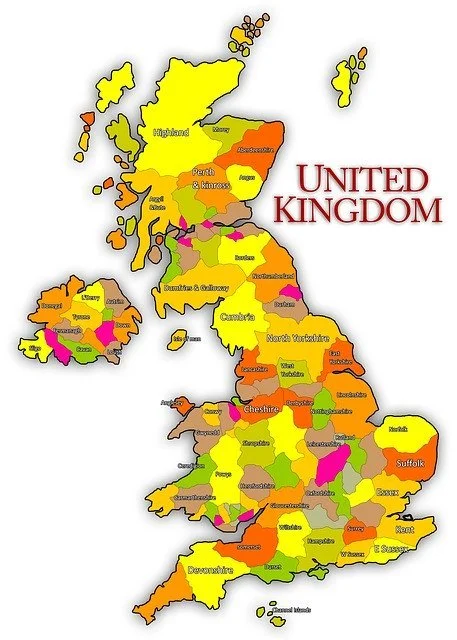Since 2015 the Association for Project Management (APM) have been producing an annual Salary and Market Trends Survey for the project profession. So it’s always good to take a peek at the latest data and see how project manager salaries, job satisfaction etc. compare with others in your industry.
Of course, the Project Management Institute (PMI) in the USA have been producing something similar on a more global scale for many more years. Earlier in 2020, they produced the 11th of their biennial salary survey reports. While the PMI report, of course, does make interesting reading it is less relevant to us here in the UK because over 80% of those contributing to the report have the PMI’s PMP certification. And the report covers 42 countries including (new for this year) Indonesia, Pakistan, Philippines, Portugal, and Russia.
So, overall, the preferred salary survey report for comparison with other UK-based project manager salaries is the APM report.

Let’s dive in and take a look at some of their data from the 2019 report – the year when the first people were awarded Chartered Project Professional (ChPP) status…
The Important Figures
- The average salary of a project professional is £47,500 compared to the UK average of £29,574.
- 46% of project managers who hold a project management qualification earn more than £50,000 and 66% have more than 10 years’ experience in the profession.
- 42% of those in contract roles earn more than £70,000 compared to only 16% earning that amount or more in permanent roles.
- £82,500 is the average salary for heads of projects/programmes
- £57,500 is the average salary for senior project managers
Not surprisingly the highest project manager salaries are in London. But, perhaps surprisingly, average salaries are the same in the South East of England, the East and West Midlands, the North West and Scotland. With the lowest average salary in Wales.
Again, not surprisingly, older project managers tend to earn more with 18-24 year-olds on an average of £27,500 and those aged 55-64 on an average of £62,500
The Gender Pay Gap
A gender pay gap still exists in the project profession, but it is encouraging that the latest data suggests the gap is closing. The 2018 survey reported that 30% of male project professionals earned more than their female counterparts but the 2019 data showed that percentage had fallen to 24%. And, clearly, it is an increasingly popular profession for women as the numbers of women becoming project professionals is rising.

Disparity by Industry Sector
There is a significant disparity between average salary across industry sectors with project professionals working in Agriculture, forestry and fishing earning an average of only £32,500. In contrast, their counterparts in the Legal and Telecoms sectors earn an average of £57,500. However, the difference could, in part, be affected by the higher level of apprentices in the Agriculture, forestry and fishing sector.
The next highest paid sectors after Legal and Telecoms are:
- Construction and the built environment
- Energy and utilities
- Financial services
- IT
- Retail and wholesale
Job Satisfaction
It is very encouraging to read that 81% of those in the project profession are satisfied in their current role and only 4% not satisfied at all. By any measure those figures bode well for the future of our growing profession with the majority of people happy to remain with their current employer.
In addition, 70% of project managers expect their salaries and benefits package to increase in the coming year and more generally 65% believe there is a positive future for the project profession and it will be enhanced over the coming 5 years.
APM members can download the full report here.
How Project Managers Can Negotiate A Pay Rise

Project managers work very hard – we all know that – but if you are well rewarded, whether in salary or benefits in kind, then the hard work is worth it. But what if you feel you should be earning more? And, if this is the case what is the best way to negotiate a salary increase?
Quite simply the easiest way to get a pay rise is to build a strong case for why you deserve it then use your negotiating skills to persuade your company to agree to the increase.
Here’s how:
Know your worth
We know from the latest APM Salary Survey that the average project manager’s salary in the UK is £47,500 so that’s a good starting point. If you have several years’ experience and some PM qualifications but are not earning the average then it’s likely you are worth more than what you’re currently being paid. This is particularly true if you work in the Legal or Telecoms sectors.
The average project manager’s salary in the UK is £47,500
Remember that for senior project managers £57,500 is the average salary, but you do need to take account of the industry you work in and your location. You can expect to earn more if you are working in London, the South East, Midlands, North West or Scotland.
For senior project managers £57,500 is the average salary in the UK
So do your research by checking salary surveys but also look at current job ads in your area and read industry magazines to assess the current demand.
Build your case
All pay increases need to be justified. Your company will want to know why you deserve a pay rise. Consider your past performance and contribution to the company – have you successfully delivered projects, or handled complex project issues effectively? Have you motivated your teams through tough times or built good relationships with demanding stakeholders?
Make sure you mention all of the things you have contributed to the company in terms of the bottom line and their reputation, in addition to your personal commitment to your job as a project manager. Think of it as selling your skills to your employer as you might have done at your initial job interview.
Also outline your future potential – are you willing to take on new responsibilities – if so, say so as that will help your case.
Be persuasive
So you know your worth and have prepared a strong case to support your request for a pay rise. All that remains is to persuade your boss – this requires you to showcase your skills, talents and experience.
Think of it as a job interview for a role you really want – you wouldn’t sit back passively hoping the interviewer would realise how good you are simply from your CV – you need to sell yourself (metaphorically speaking of course). Be proactive; prepare and practice the things you want to say to remind your boss what an asset to the company you are.
Remember to remain calm and professional but you will need to be assertive to get your message across. Be absolutely clear and focused about the reasons you deserve a pay rise:
- experience
- past performance
- commitment to the company
- willingness to take on new responsibilities
Whatever the outcome, stay positive, keep working hard and, if necessary, polish up that CV.
Does a PM Qualification Mean a Better Salary?
A project management qualification proves you have experience, knowledge, a willingness to learn and a willingness to work for success. But gaining a PM certification is a big commitment in time and money so can it boost your salary?
Whilst we have no specific data for the UK, and, naturally, salaries vary widely between industries and levels of seniority, the simple answer according to the US-based PMI is yes. A PM qualification can boost your salary.
In the USA a PMP certified project manager can earn a 22% higher salary than uncertified project managers, particularly in IT and engineering roles. But in any industry, having externally recognised qualifications is a good career move – by improving career prospects it can open up more, and better-paid, opportunities.
However, many people still avoid gaining qualifications in favour of focusing on more on-the-job experience. Ideally, of course, a project manager will be able to achieve both of these things. As in all cases experience is never a bad thing, but a PM qualification is an excellent way to prove that experience and knowledge to employers, senior management, colleagues and clients.
Here are just two of the reasons a PM qualification can help you earn a better salary:
Your Company Benefits
When a company invests in project management training for staff, they don’t just do it because it benefits their employees. Any organisation benefits if you gain an externally recognised PM qualification. The organisation gains a happy, loyal employee who is grateful of the company backing. They gain best practice knowledge shared by the employee fresh from their project management training. They also gain an excellent reputation because they have employees working for them with externally recognised qualifications.
And what does this all mean for you as the employee? Leverage. It means that the promotion you have been after becomes much more achievable. This is because you are a much more valuable asset now. You have not only sought to learn and improve your skills, but you have done just that by completing a difficult PM qualification, which means you’re in a great negotiating position for a pay-rise or a promotion.
Stand Out from the Competition
Most project managers are selected for their track record delivering projects. And a structured approach to projects is going to help you be more successful in the long run. However, when it comes to a job interview most employers will use a competency-based approach for the selection of project managers. But, these often draw on your underpinning knowledge, such as:
- Describe a situation in which you had to deal with difficult stakeholders?
- Explain how you control costs on projects?
- Describe a situation in which you had to manage a complex change request?
A qualification can help you to provide a structure to these competence-based job interview questions. Therefore, having a PM qualification can help you in several ways:
- By adopting a structured approach to your projects you will be more successful
- The qualification will provide you with the theoretical underpinning to be more successful in job interviews
- The qualification, especially Chartered Project Professional, helps you to stand out from the crowd of other non-chartered project managers
No longer is having many years’ experience in project management sufficient, employers are increasingly looking for project managers who are professionally qualified.
A PM qualification not only proves you know your stuff, but you’ve made the extra effort to prove it. Project management training might not seem a top priority when you’re busy managing real-life projects, but when you’re trying to negotiate a better salary or secure a higher-paid job – it is crucial. So if you’re looking to switch to a more lucrative role, or gain your first project management position, invest in a project management qualification – it will differentiate you from the rest.
A recognised qualification can mean the difference between an entry level position and senior position. Get a PM qualification and prove your worth – your bank balance will benefit.